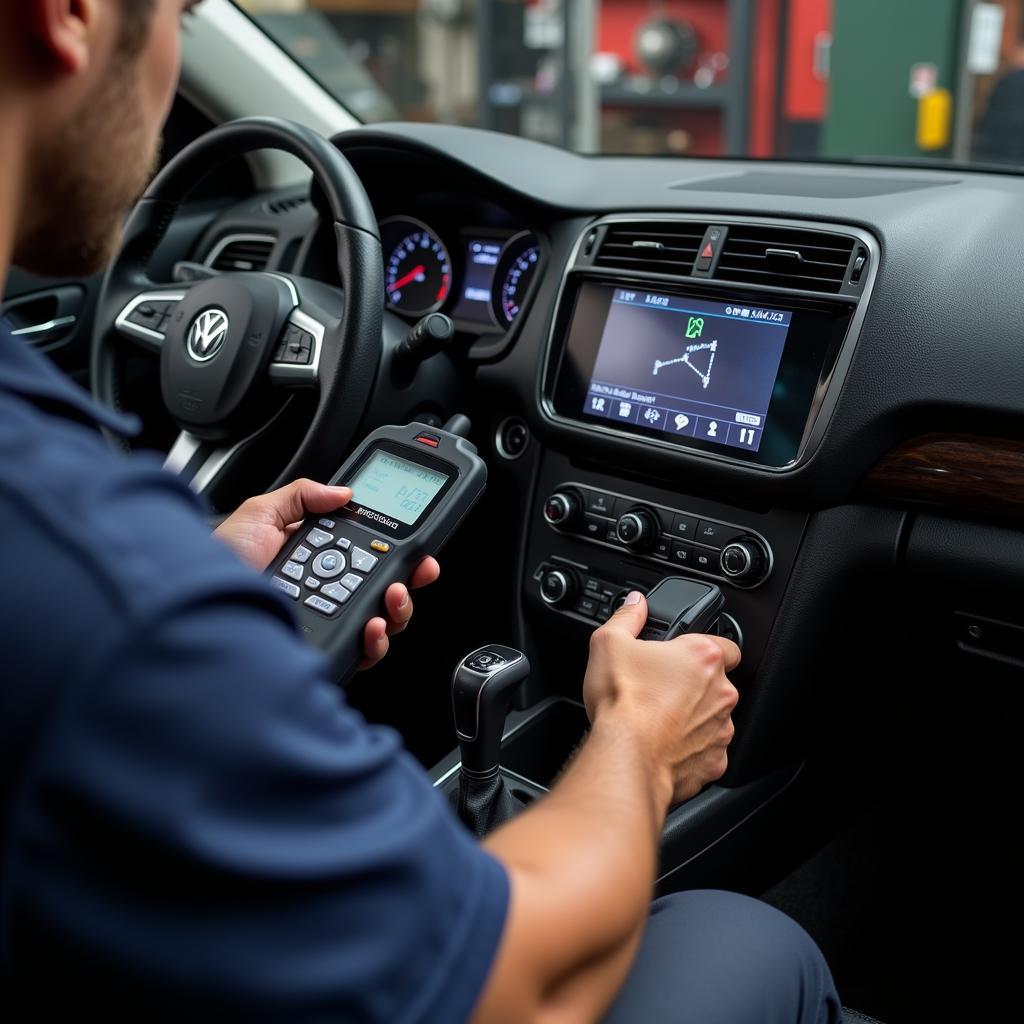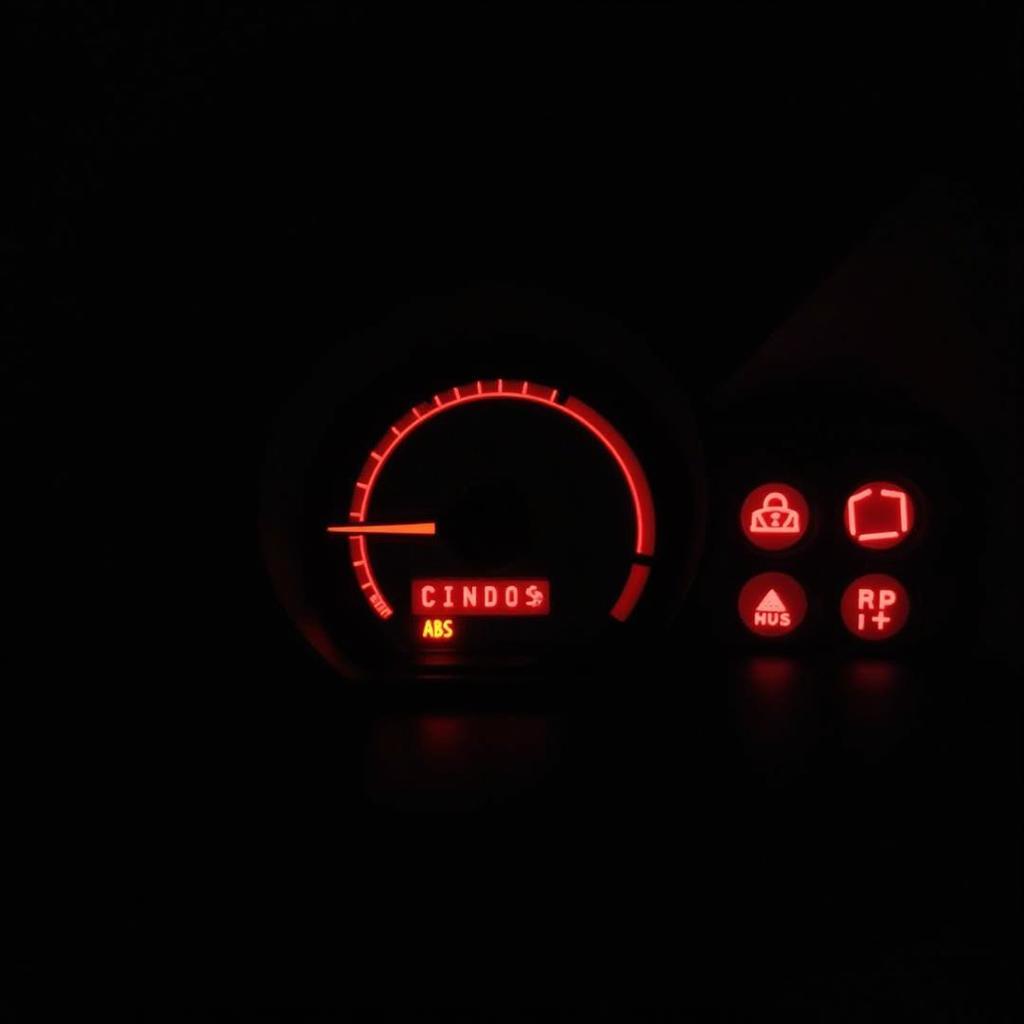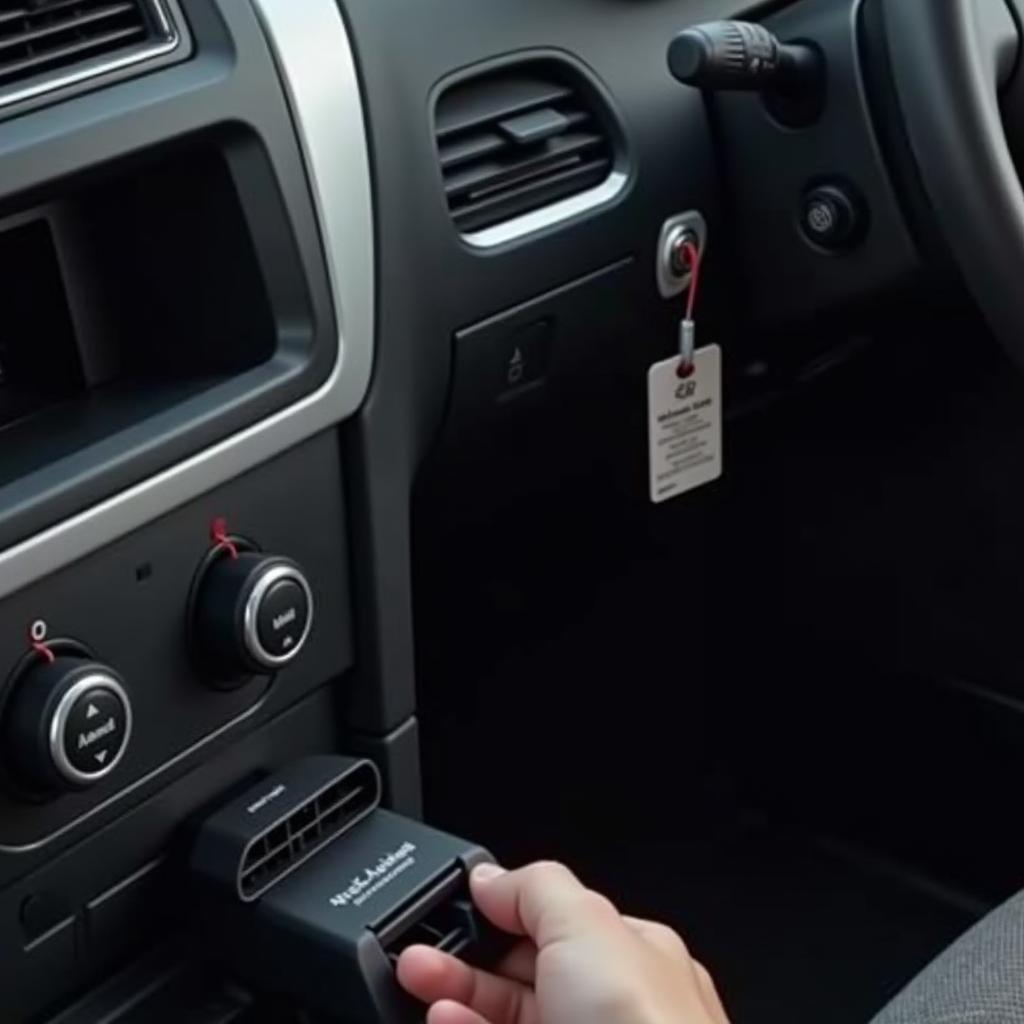A car diagnostic test is like a health check-up for your vehicle. It uses a specialized tool, called a car diagnostic scanner, to communicate with your car’s computer system and retrieve valuable data about its health and performance. This data helps identify any existing or potential problems your car might have.
 Mechanic performing a car diagnostic test
Mechanic performing a car diagnostic test
Why is a Car Diagnostic Test Important?
Think of your car’s dashboard warning lights like its voice – when something’s wrong, these lights illuminate to get your attention. A car diagnostic test delves deeper, acting as a translator for those warning lights and deciphering their meaning.
 Car dashboard illuminated with various warning lights
Car dashboard illuminated with various warning lights
Instead of vague warnings, the test provides specific insights into the issue at hand. This allows you to address the root cause of the problem, saving you time and money on unnecessary repairs.
What Does a Car Diagnostic Test Tell You?
A car diagnostic test can reveal a wealth of information about your vehicle’s systems, including:
- Engine Performance: The test can identify issues with fuel injectors, spark plugs, air intake, and other engine components that affect performance.
- Emissions System: It checks the efficiency of your car’s emissions control systems, ensuring compliance with environmental regulations.
- Transmission: The test can detect problems with your car’s transmission, such as slipping gears or faulty solenoids.
- Braking System: It assesses the functionality of your anti-lock braking system (ABS), traction control, and other braking components.
- Airbag System: The test can identify issues with your airbags, ensuring they function correctly in case of an accident.
What are the Different Types of Car Diagnostic Tests?
There are two main types of car diagnostic tests:
- OBD-II Scan: This test uses the standardized On-Board Diagnostics II (OBD-II) port found in most cars manufactured after 1996. It retrieves generic diagnostic trouble codes (DTCs) that provide a general indication of the problem.
- Factory-Level Scan: This test uses specialized software and equipment designed for specific car makes and models. It provides more detailed information than an OBD-II scan and can access manufacturer-specific codes and data.
 OBD-II scanner plugged into a car’s OBD-II port
OBD-II scanner plugged into a car’s OBD-II port
When Should You Get a Car Diagnostic Test?
It’s recommended to get a car diagnostic test:
- When a dashboard warning light illuminates: This is your car’s way of telling you something needs attention.
- Before buying a used car: A diagnostic test can reveal hidden problems and help you make an informed purchase decision.
- As part of regular maintenance: Just like regular health check-ups, periodic diagnostic tests can help identify potential problems before they become major issues.
Conclusion
A car diagnostic test is an essential tool for any car owner. It provides valuable insights into your vehicle’s health, helps diagnose problems accurately, and can save you time and money in the long run. Whether you’re experiencing car troubles or simply want peace of mind, consider getting a car diagnostic test – it’s an investment worth making.
FAQ
- How much does a car diagnostic test cost? The cost can vary depending on the location, type of test, and complexity of the issue. However, a basic OBD-II scan can range from $50 to $100.
- Can I perform a car diagnostic test myself? Yes, affordable OBD-II scanners are available for home use. However, for more complex issues, it’s recommended to consult a qualified mechanic.
- Will a car diagnostic test fix the problem? No, the test only identifies the problem. Repairing the issue requires further inspection and work by a qualified mechanic.
Need Assistance?
Have more questions or need expert help with your car’s diagnostics? Contact our dedicated team via WhatsApp: +1(641)206-8880, Email: [email protected]. We provide 24/7 support to keep you moving.

Leave a Reply